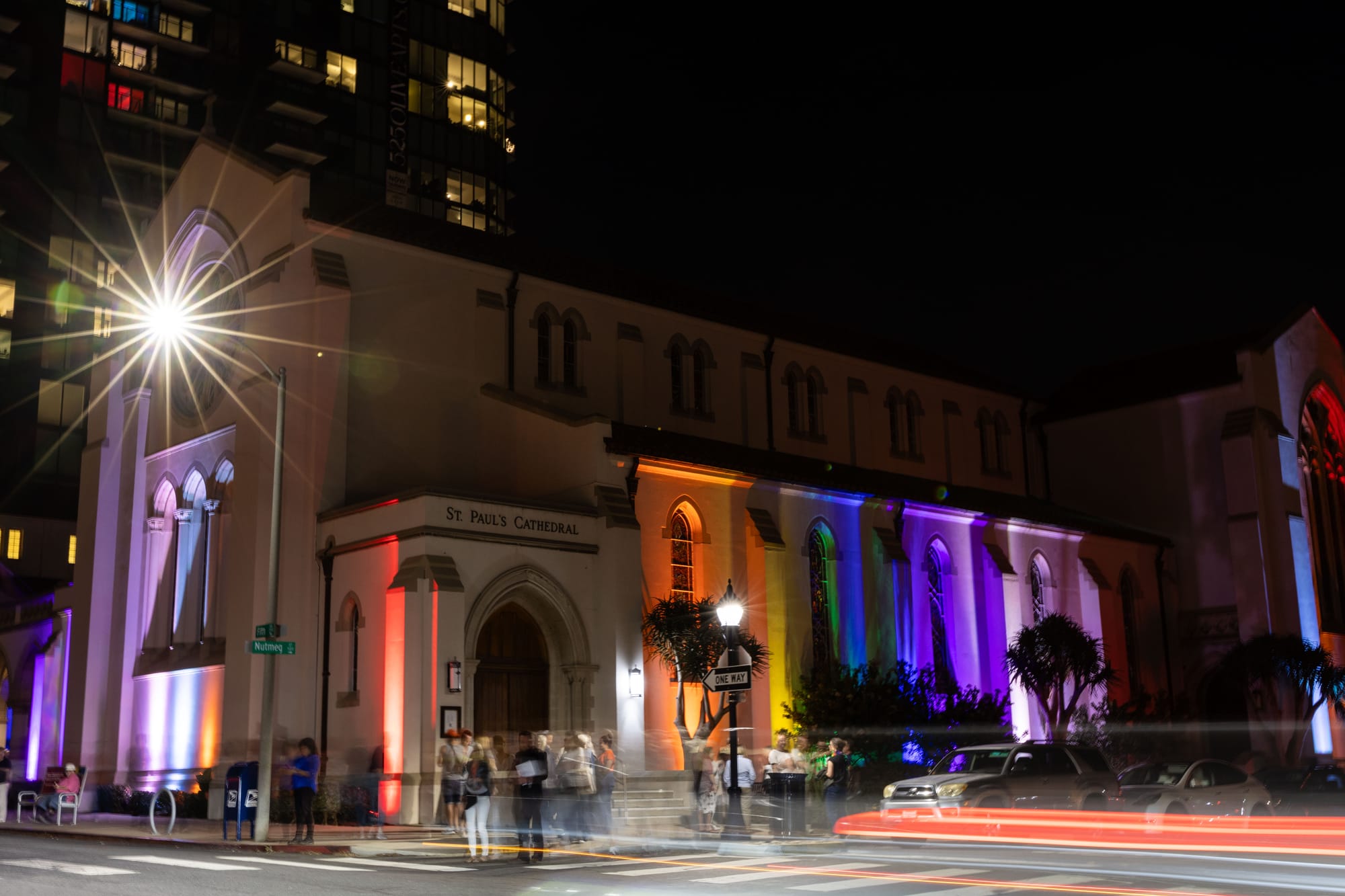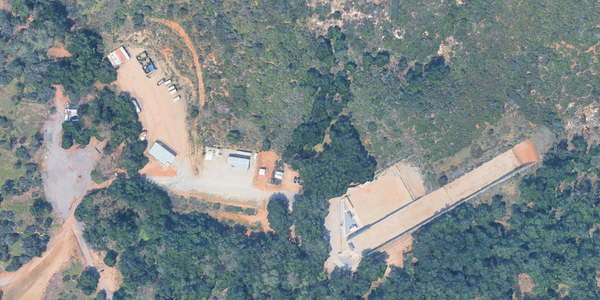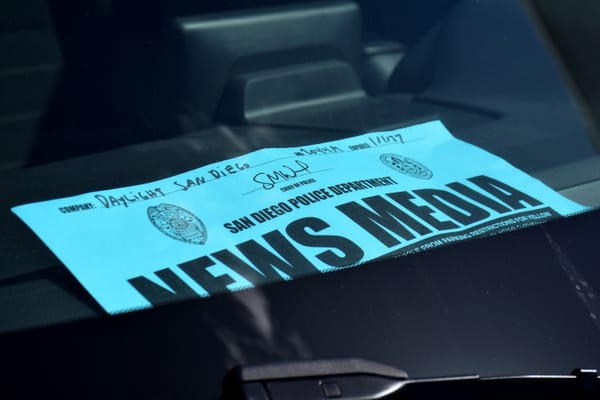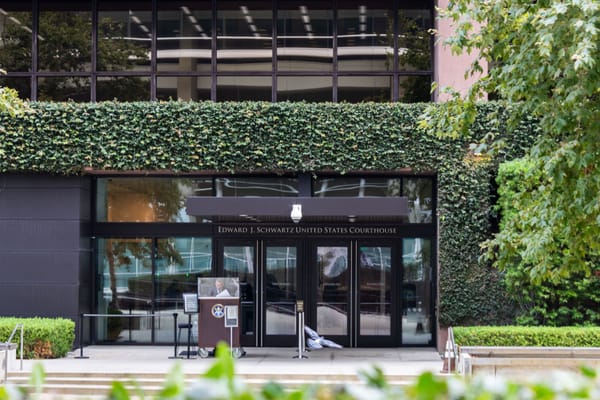Faith and Pride shine bright at St. Paul’s Episcopal Cathedral
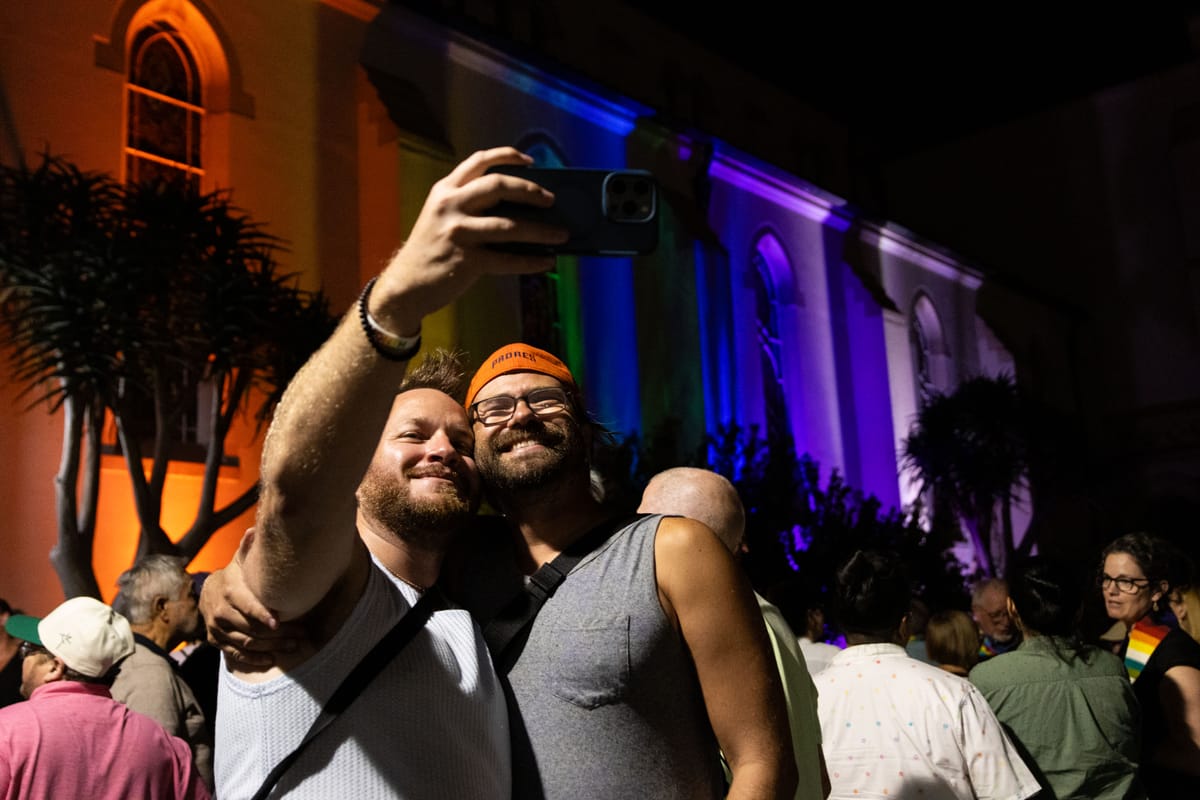
Hundreds gather for Light Up the Cathedral, the 10th annual interfaith service uplifting LGBTQ+ voices across San Diego’s religious communities.
Written by Lauren J. Mapp, Edited by Kate Morrissey
Rainbow-colored lights illuminated St. Paul’s Episcopal Cathedral after hundreds of people sang, prayed and gathered there for the 10th annual Light Up the Cathedral interfaith celebration Wednesday night.
Nearly four dozen religious leaders from various Jewish, Muslim, Christian and Buddhist communities throughout San Diego County — many of whom wore rainbow stoles for the occasion — read scripture, prayers and reflections during the standing-room-only event at the Bankers Hill church.
In his keynote address, Rev. Caedmon Grace said religious communities can use light to cut through pain, suffering and spiritual crises.
“When I consider the state of the world today, my spiritual glasses show me that we are in a season of rampant and vast disregard and loathing, in some cases for the sanctity or the preciousness of life,” he said. “The misuse and abuse of power and resources is causing global catastrophes that directly affect peoples’ quality of life.”
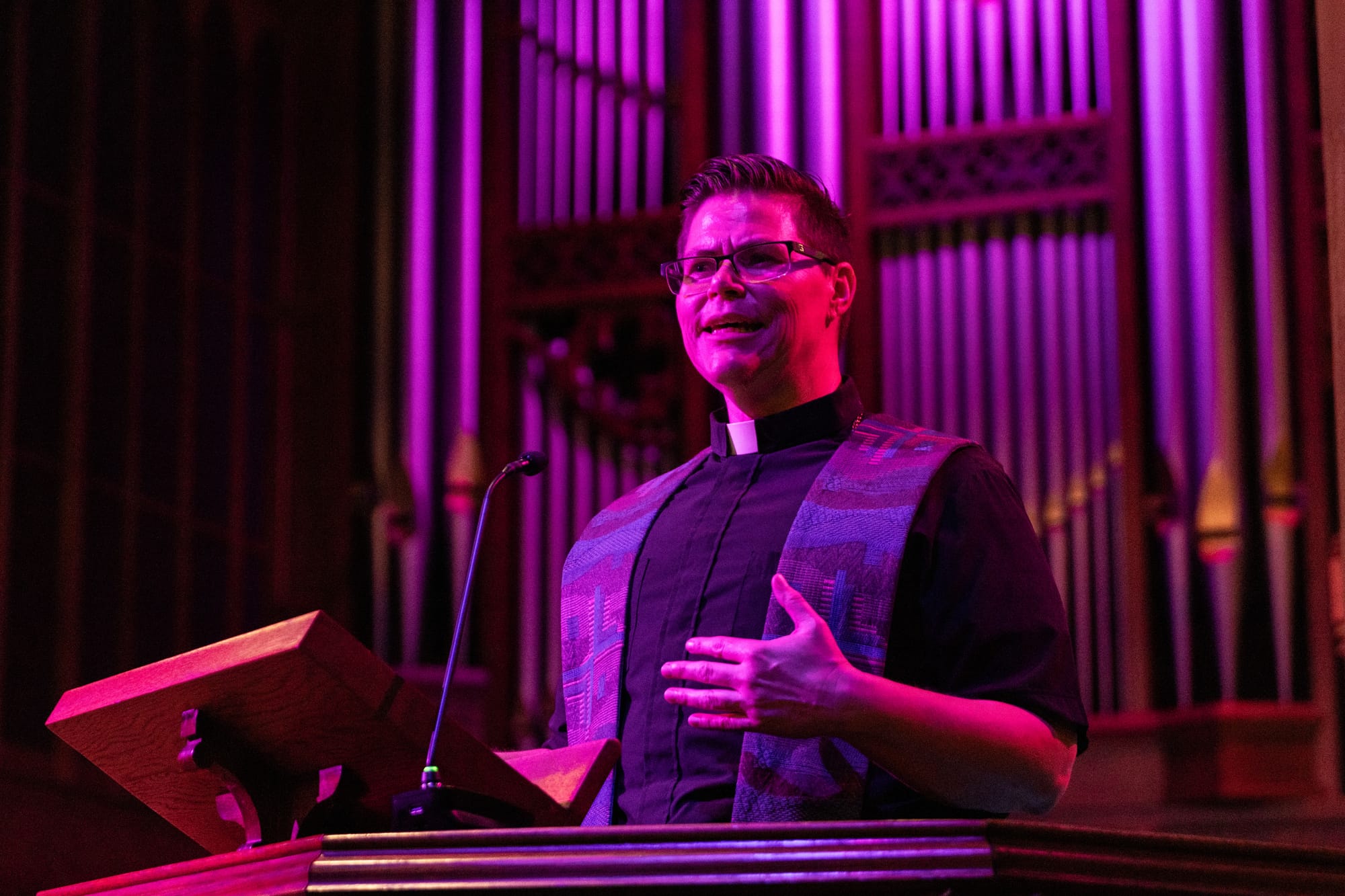
Embracing spirituality, Grace said, can be a way for religious followers to find enlightenment and peace — even through the most difficult times. “Finding the light is very important work, because the light creates a means, a pathway, for us to observe what is present and navigate our environment,” he said. “Having the keen ability to clearly discern what is present in our environment is key to our safety, to our vitality and to our joy.”
San Diego Pride Interim Executive Director Kristin Flickinger presented Metropolitan Community Church pastor Rev. Dan Koeshall with the Light of Pride Award, which honors spiritual leaders advocating for the LGBTQ+ community.
Pride Pop Up Symphony Orchestra, San Diego Women’s Chorus and San Diego Gay Men’s Chorus also performed songs throughout the ceremony, and Oceanside Sanctuary Church Music Director Joey Pearson closed the service with an original composition called “Light Dwells in Me.”
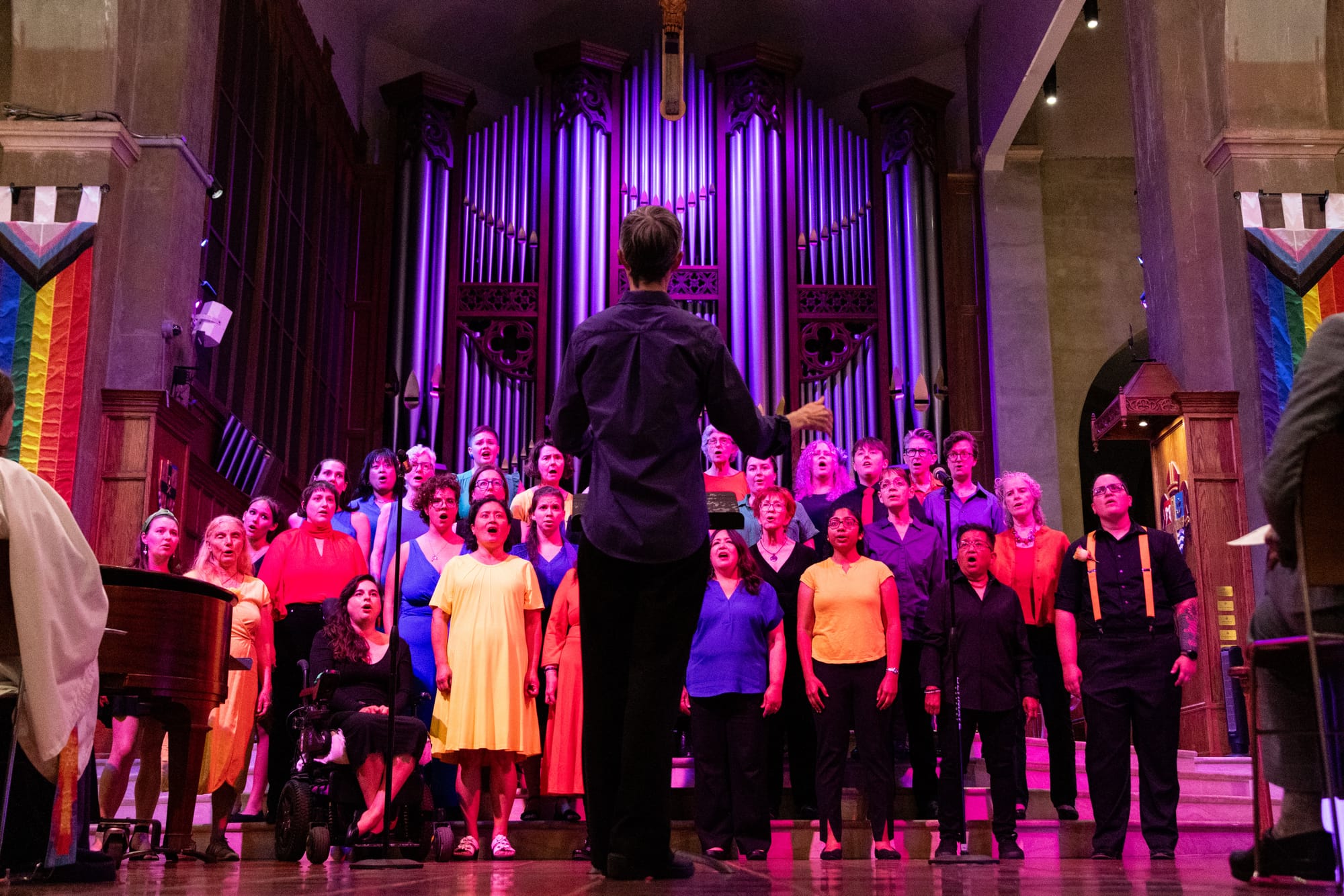
Following the service, many attendees described Light Up the Cathedral as a powerful experience that reaffirmed their faith as LGBTQ+ congregants. Several people said more conservative religious communities exiled or excluded them after they came out.
San Diego Gay Men's Choir interim director Steve Milloy said he grew up in the Church of God in Christ. Describing the Christian denomination as a “holy roller” church for its conservative stance, he said participating in the ceremony was especially meaningful given his personal journey with religion.
“For me, this goes deep,” Milloy said. “At 9 years old, I was told that I had a demon in my soul, so to be able to just step back into a church and feel love instead of hate and resentment is a wonderful thing, and it's a blessing.”
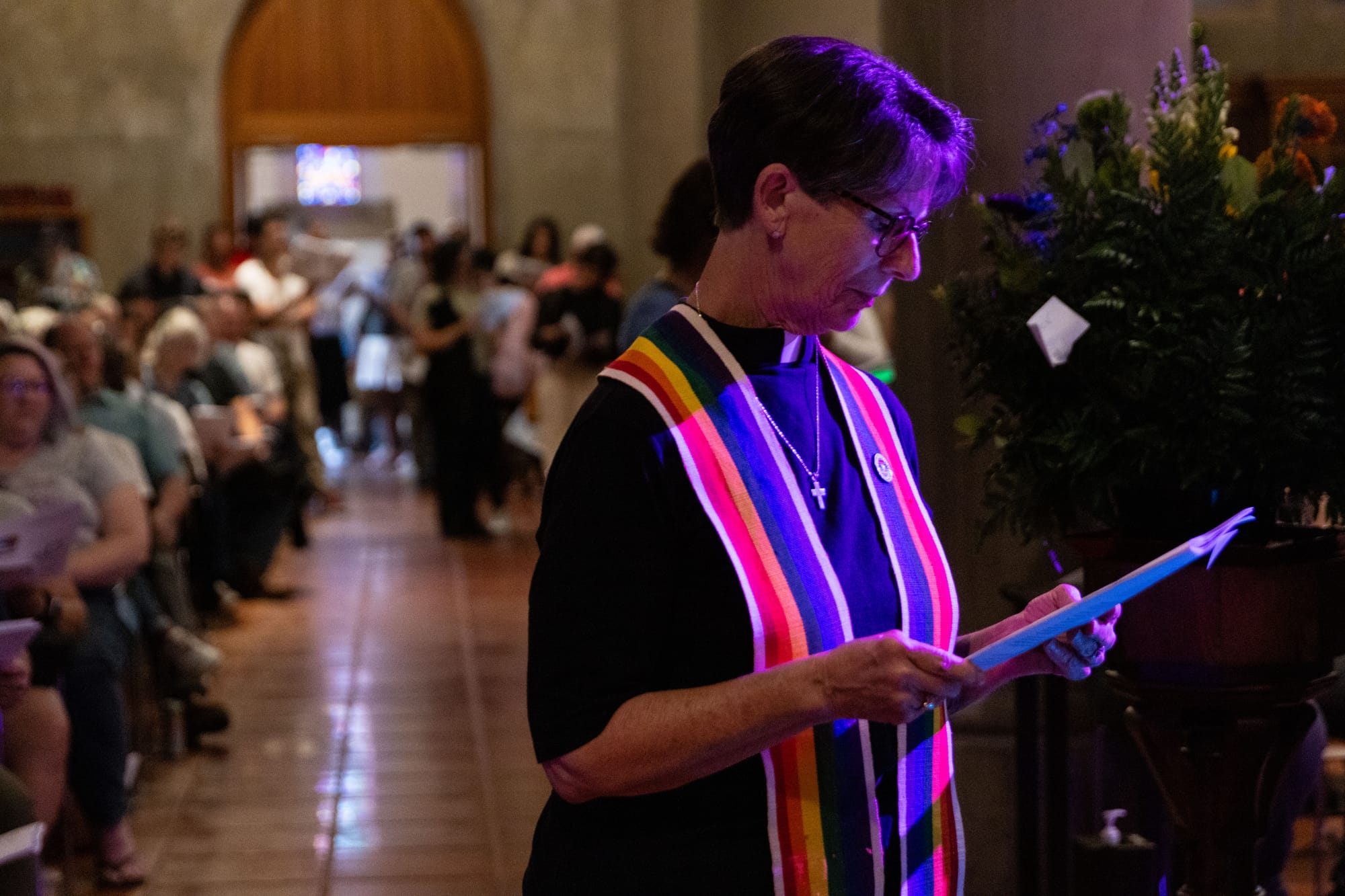
Mary Doyle and her wife Marti Welch-Doyle both grew up in religious communities, and both came out later in life at 38 and 45, respectively. The couple started attending church services together at St. Paul’s Episcopal Cathedral prior to the COVID-19 pandemic and felt welcomed within the community there.
“I just think this church kind of brought God back to me,” Welch-Doyle said. “I came out later, and it was like, 'Well, I guess I can't really go to church anymore. I guess that part of my life is over, I'll just be spiritual.’ And then coming here, I got to have everything.”
Doyle, who was raised Roman Catholic, said attending church helps her reconnect to memories of her mother.
“My mom, who has passed away, was a very practicing Catholic and lived it,” she said. “She had a very good faith, and I feel like being here, I'm closer to her again and closer to all the wonderful aspects of being a member of a giving and selfless church.”
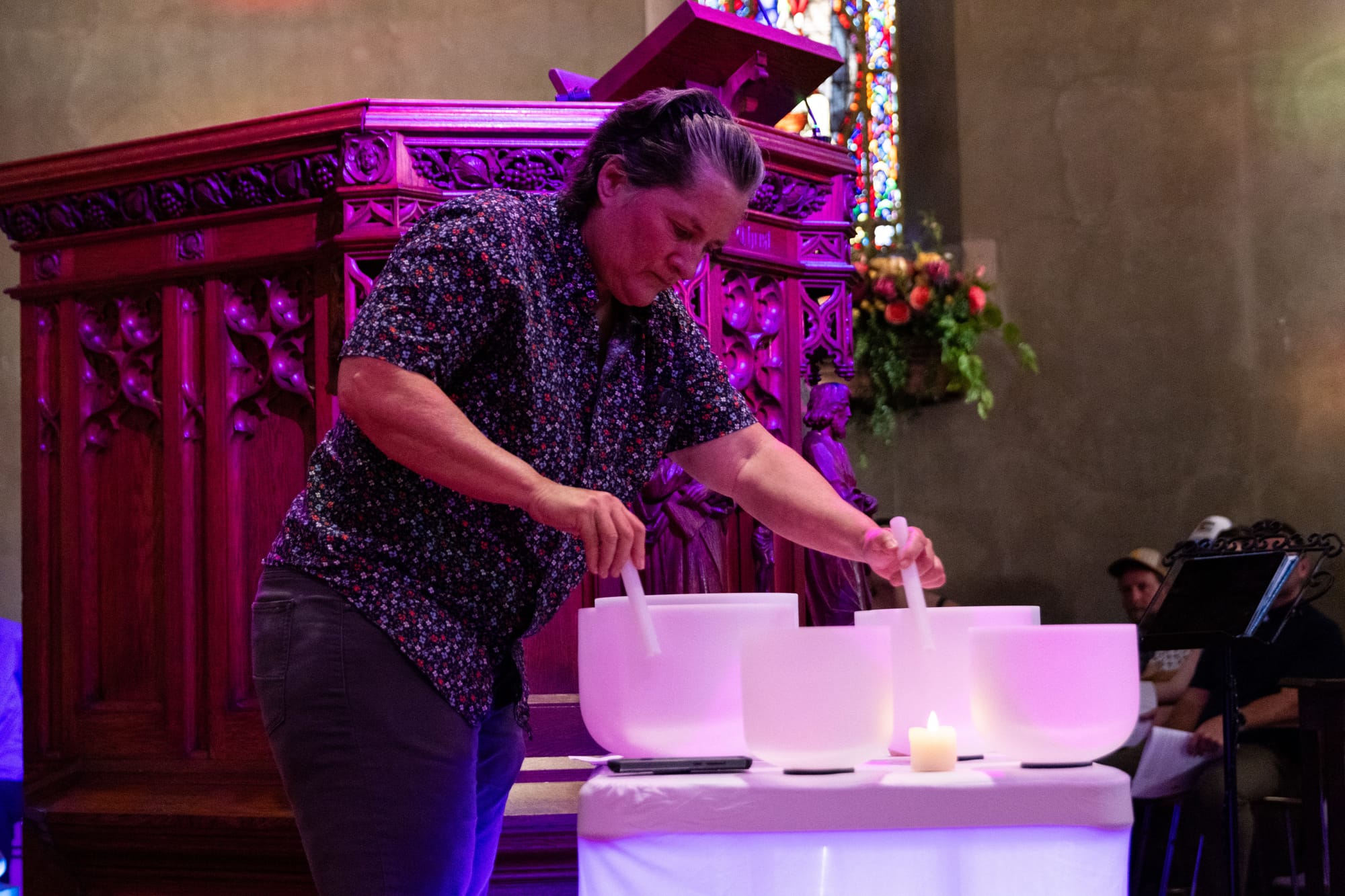
Singer Jason Huffman was raised within the Southern Baptist Church while growing up in Arkansas. Although he has since largely stepped away from religion, he said events like Wednesday’s give him hope that he can be accepted for who he is within a religious community.
Huffman said he has found a new sense of spirituality by singing with the San Diego Gay Men’s Chorus.
“Choir became a family and another way for me to basically worship through music,” he said. “One of my favorite things about going to church was the music, and I lost that family. Then I found this the Gay Men's Chorus and got to worship together with other like-minded individuals.”
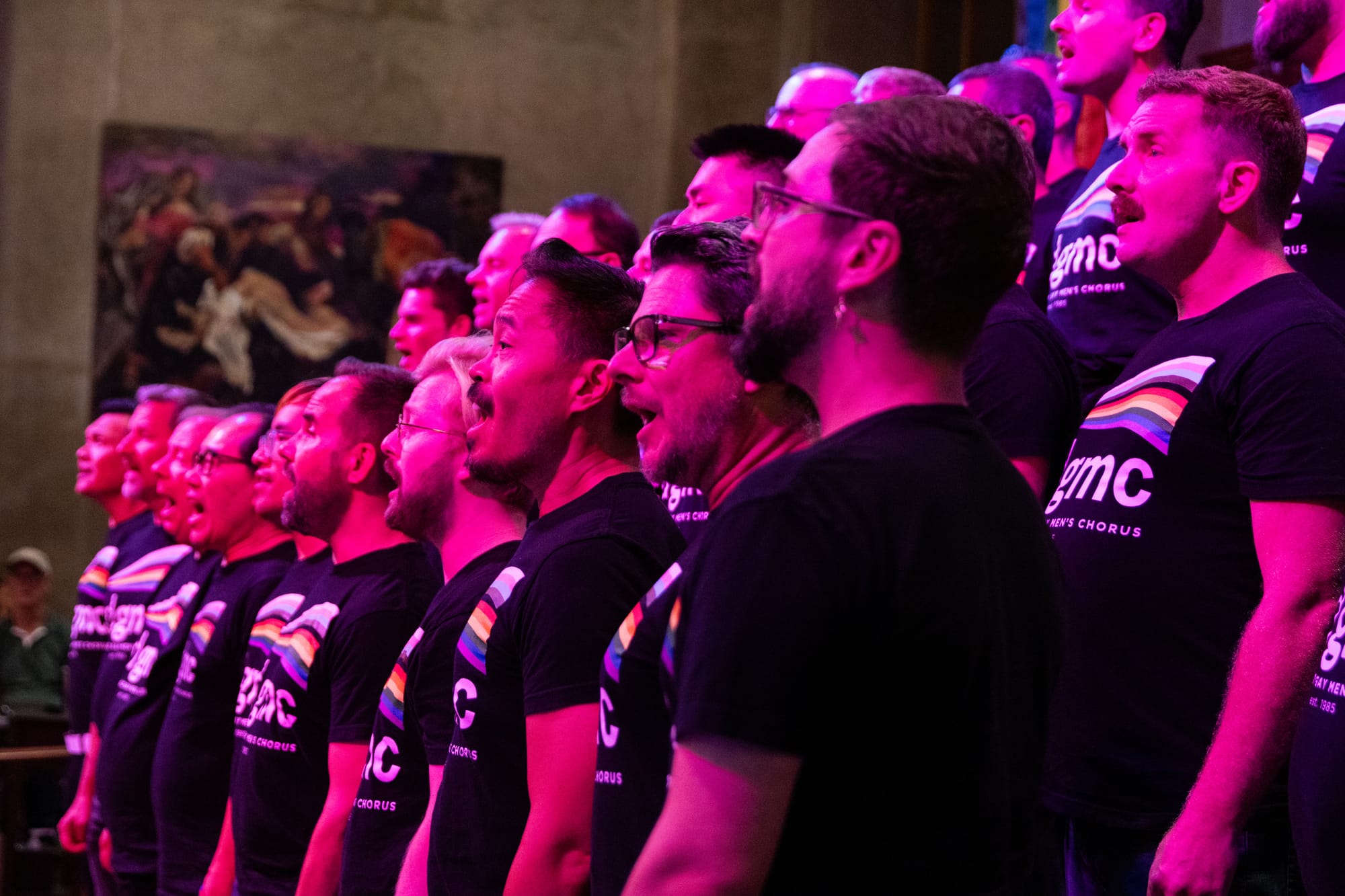
Drag performer Amber St. James said spirituality was always a part of their life, but religion didn’t come in until later in life. While they primarily go to church for major holidays like Easter and Christmas, St. James said they work gospel music and spiritual messaging into their drag performances.
“Having spaces and having people in my life that were able to be these counter narratives that religion doesn't have to hate people like me, and that I can still be able to engage in faith, worship and spirituality was always very, very powerful for me,” they said.
In 2015, the Very Rev. Penny Bridges created the Light Up the Cathedral event during her first year as dean at St. Paul’s, public relations and media director Susan Jester said.
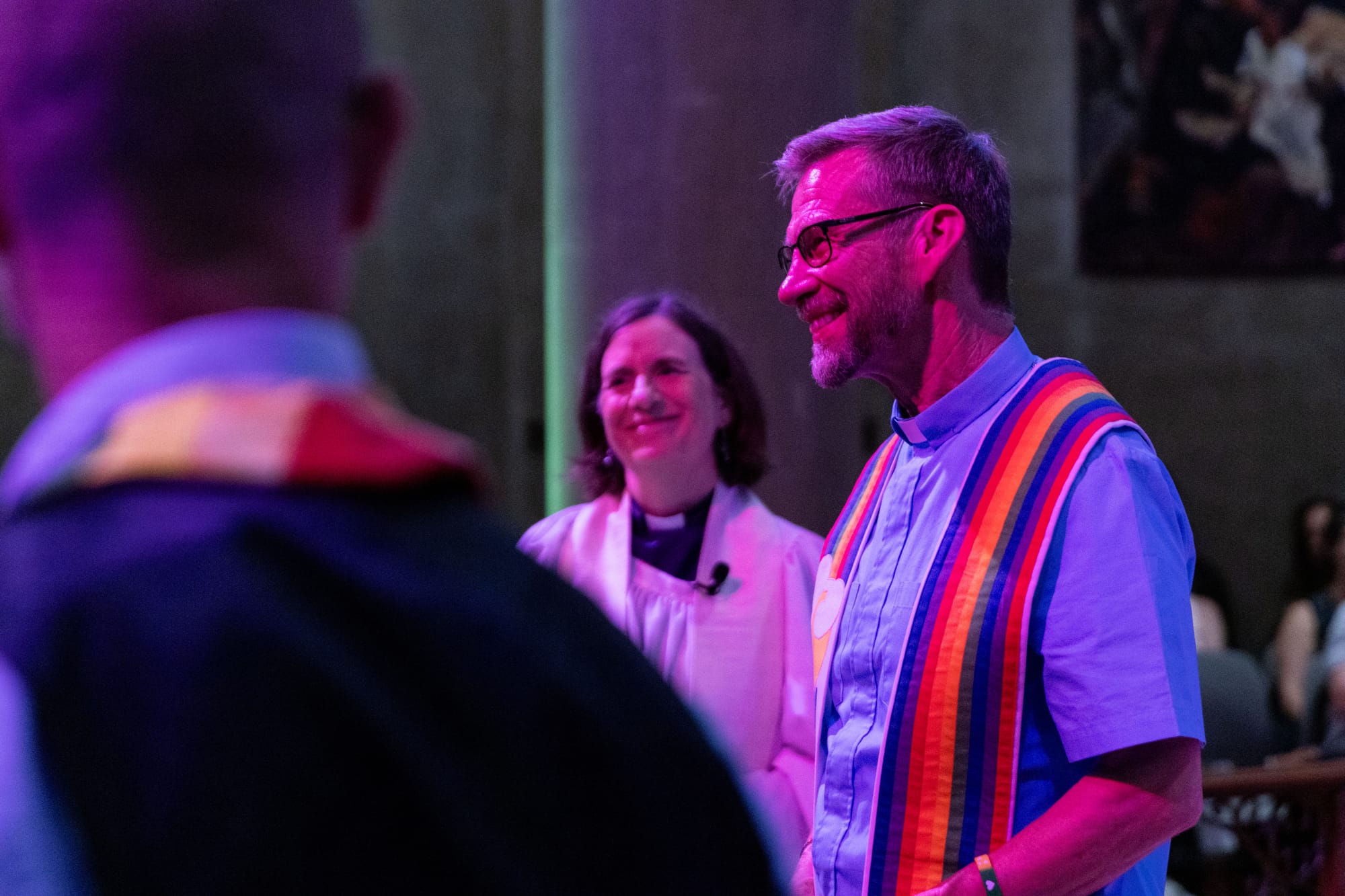
Bridges was inspired by a winter holiday light display at Mister A’s, and the church’s proximity to the San Diego Pride parade route and festival, Jester said. Not only did she think of the idea to shine rainbow lights on the outer walls of the cathedral, but Bridges also led the fundraising effort to support it.“It was totally her idea because she wanted to show support for the LGBT community, especially during Pride Week when we're right in the middle of hundreds of thousands of people,” Jester said.
Over the past decade, the smaller ceremony within the church grew to include religious leaders from other faiths. Drawing from her political background, Jester said the effort to include what she described as “a show of support on the religious left” was in part a response to the uptick in anti-LGBTQ+ legislation in 2018.
“There were a lot of religious freedom laws being passed around the country in different legislatures, and the religious right kind of rose its nasty head,” she said.
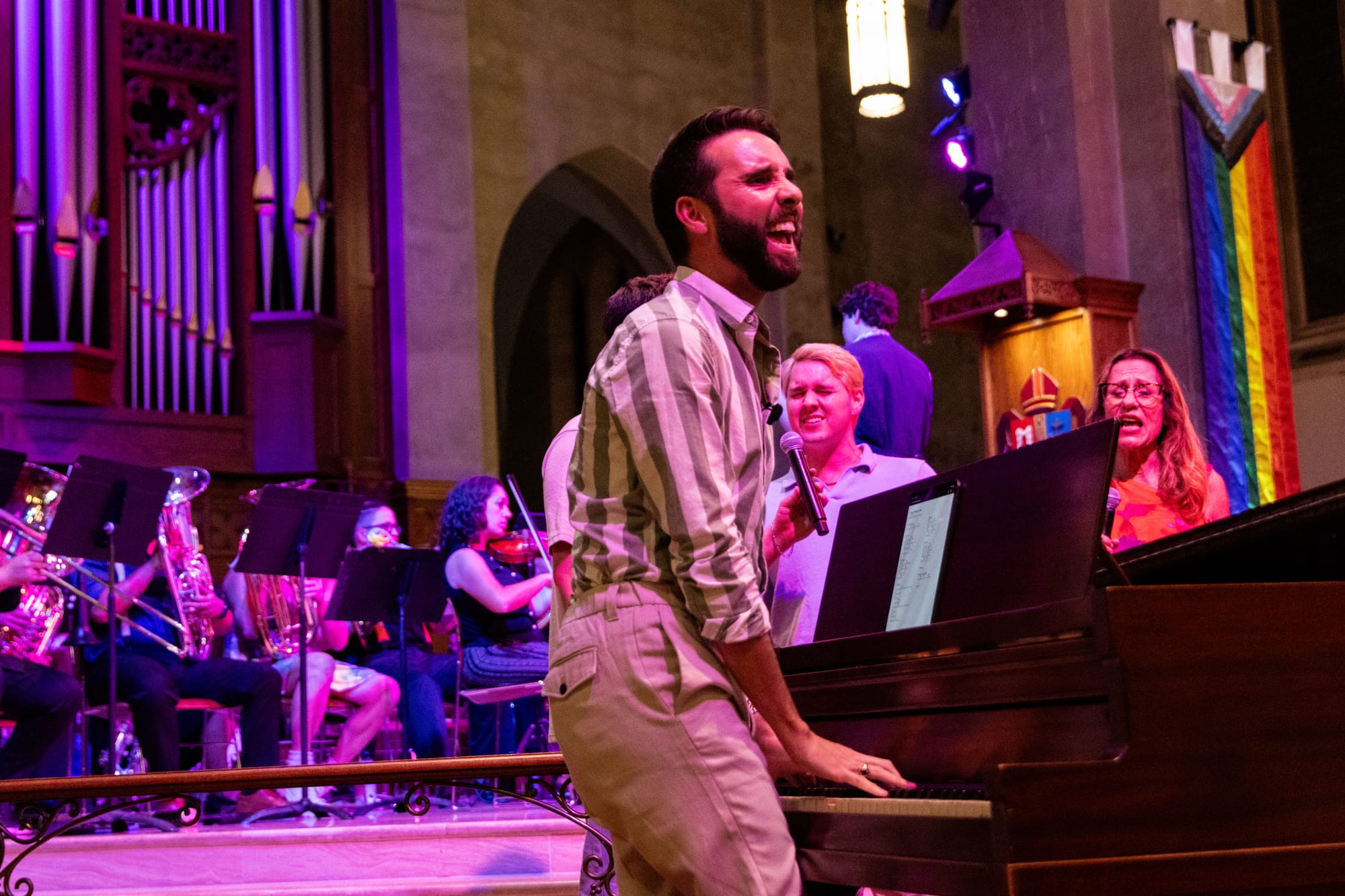
Bishop Susan Brown Snook of the Episcopal Diocese of San Diego said Light Up the Cathedral is just one of the ways churches under her jurisdiction affirm support of LGBTQ+ congregants.
One of her churches in Encinitas is working to better support the transgender community and foster broader acceptance. Three Coachella Valley churches host a worship service during the November Palm Springs Pride celebration, and St. Hugh of Lincoln Episcopal Church hosts a Pride festival in Idyllwild.
“We believe that even when our world looks so troubled and divided and conflicted that our ministry is the ministry of love,” Brown Snook said. “I have faith that love will win and that our role in this world is to be people who share God's love.”
The Episcopal Church has a long history of moving toward greater support of its LGBTQ+ members.
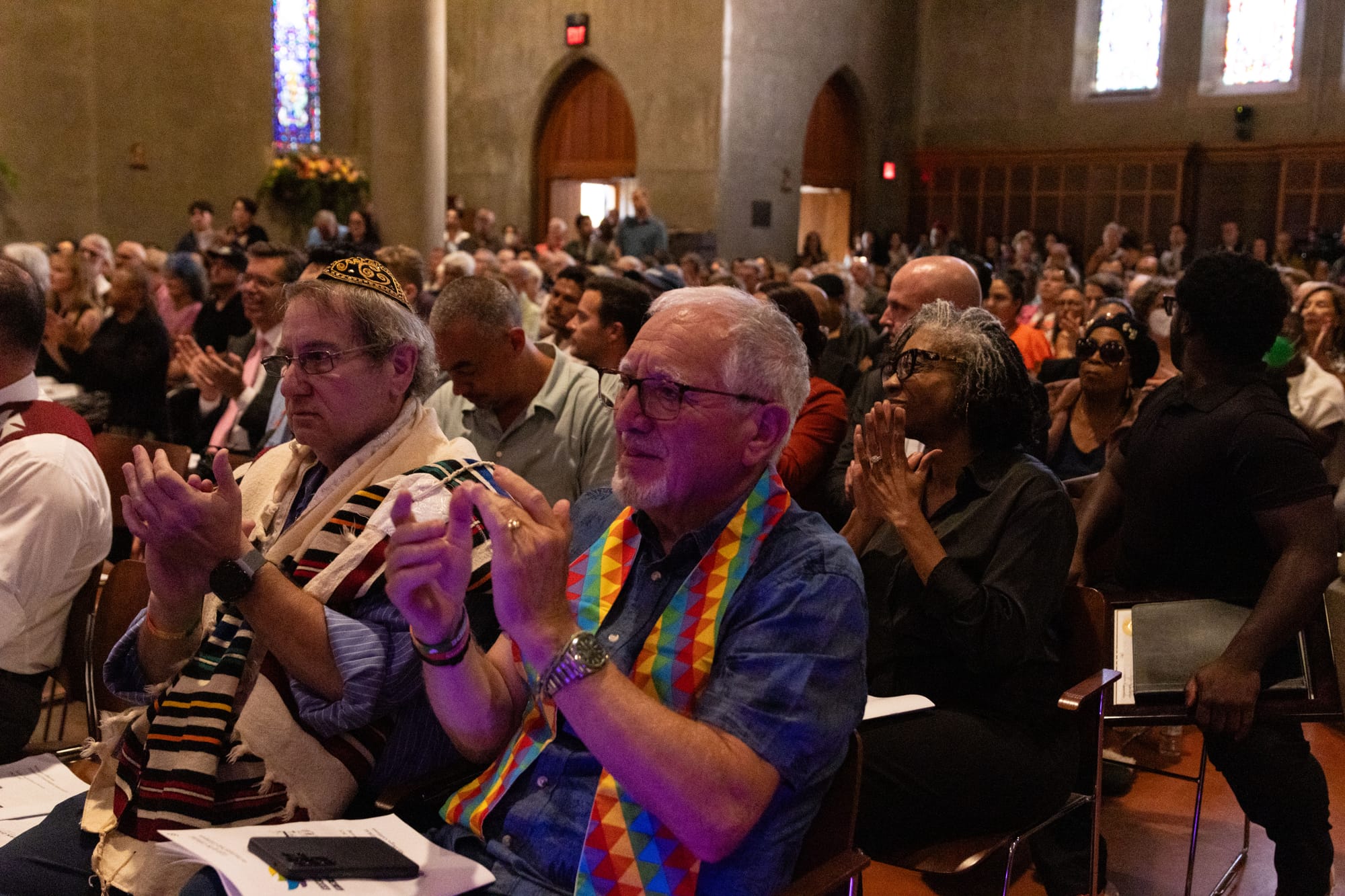
In 1977, the General Convention passed a resolution affirming “that homosexual persons are entitled to equal protection of the laws with all other citizens,” according to church archives.
In 2009, General Convention approved a resolution allowing gay men and lesbians to become ordained ministry, and in 2012 the Church allowed blessings for same-sex relationships. Three years later — and a week after the U.S. Supreme Court ruled in favor of same-sex marriage — the General Convention removed the stipulation that marriage can only take place between a man and a woman.
While attending the 2009 General Convention, Brown Snook said she experienced a turning point in her faith journey to support LGBTQ+ inclusion in the church as a priority. That year — in her first time attending as an elected deputy — she spoke with many LGBTQ+ church members who were struggling to fully participate in church activities.
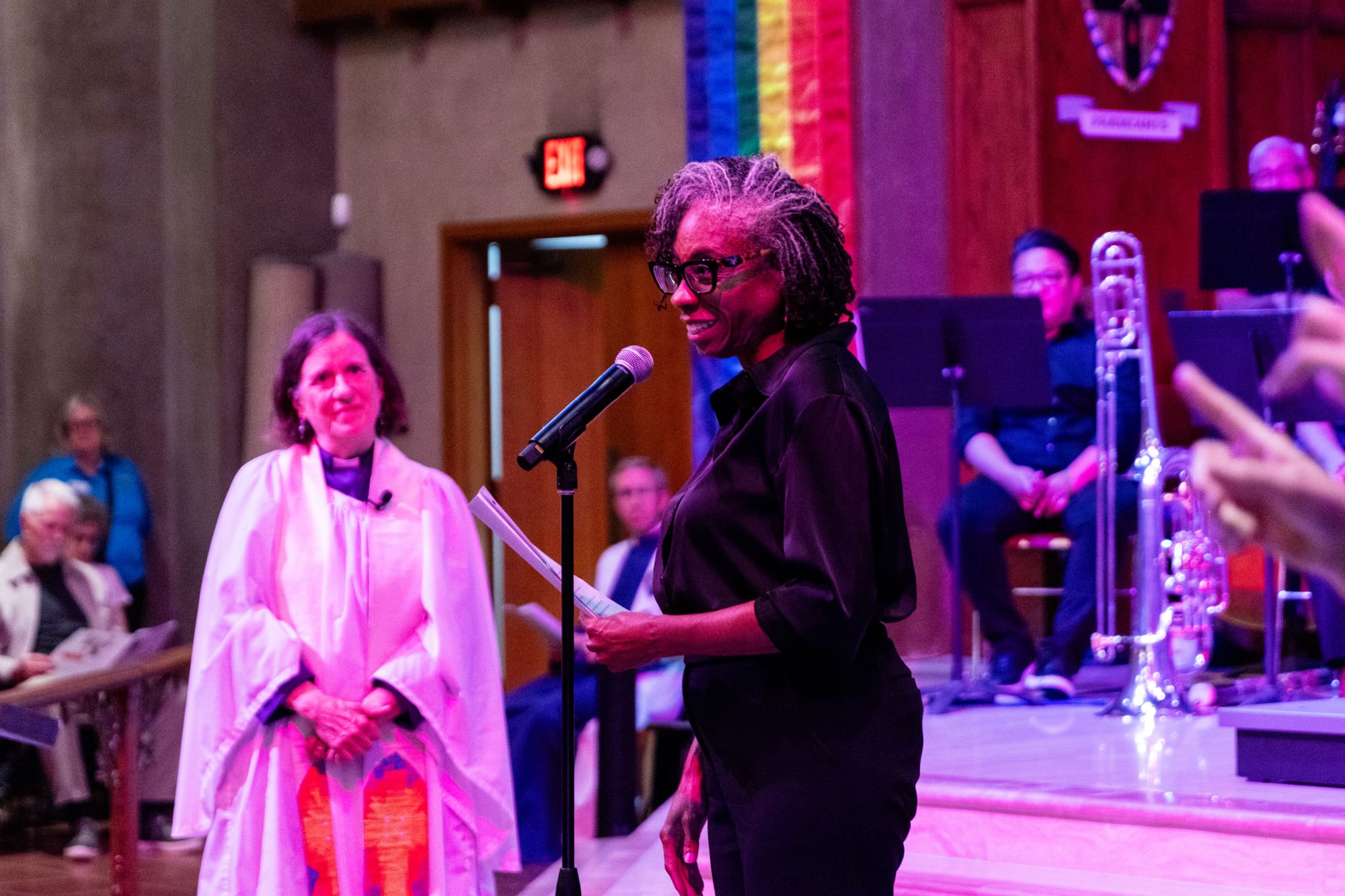
“As I listened to their stories, and as I got to know them, I realized the similarity between the struggle they were going through for full inclusion and recognition in the church to the struggle that women had gone through in the mid-70s to be ordained,” Brown Snook said.
She said that while human institutions like churches often limit how some people can participate, she realized that “God calls them in different ways.”“If people come with a genuine call to be a full part of the church and to be recognized as leaders and to be allowed to do the ministry that God has called them to do, I think we need to pay attention to what God is doing in that,” Brown Snook said.
Although the Episcopal Church has made significant steps toward better inclusion of LGBTQ+ community members, she hopes that in the future, more people will see beyond their identities.
“I hope we come to a point where sexuality is not the first thing that we see about people, where we recognize people in their great variety,” Brown Snook said. “It may be one descriptor of who they are as a person, but that we really look more deeply for what is in a person's heart and in a person's soul and what they bring to the life of worship.”
